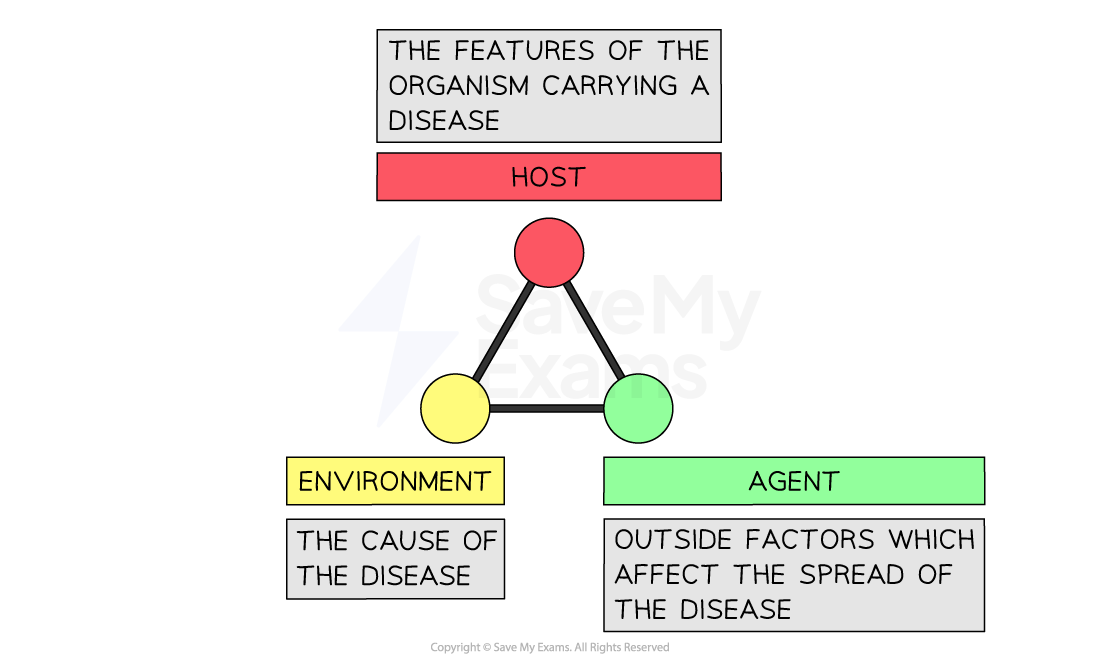Epidemiology of Disease
- The Epidemiology of Disease is the understanding of:
- When a disease started
- Where it has started
- How it started
- Factors contributing to the spread
- It also supports work to prevent and treat diseases
- It is a vital study that underpins the management of pandemics
- The famous physician John Snow, named the ‘Father of Epidemiology’, was one of the first to use epidemiological thinking to assess disease outbreak
- In London in 1854, a severe outbreak of cholera hit the city
- Most physicians at the time assumed it to be an airborne disease
- Using epidemiology, John Snow worked out how the disease began
- The disease originated from a water pump
- We can think about disease spread using the Epidemiological Triangle
- There are 3 factors to consider:
- Host - characteristics of a person e.g. age, race, occupation, social status etc
- Agent - the cause (biological, chemical, physical or nutritional)
- Environment - what could impact the agent (temperature, food or water, pollution, housing status)

The Epidemiological Triangle

